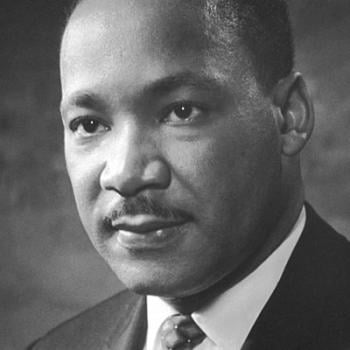 |
| The Wartburg, from https://commons.wikimedia.org/wiki/File:Wartburg_Eisenach_DSCN3512.jpg |
As anyone who knows me is aware, I’ve been engaged for more than twenty years now in discerning whether or not I should enter full communion with Rome (i.e., “become Catholic”). This journey began–well, it probably began with my parents and grandparents teaching me the Christian faith in infancy. Discovering G. K. Chesterton as a teenager made me begin to think of Catholicism as a live possibility. Phil Kenneson, one of my professors at Milligan College, told me that “Rome was not a bad place to start” (by which he did not mean to convert to Catholicism, but to learn from “Rome” how to take church and tradition more seriously). But I first explicitly declared a desire to become Catholic in my first semester as a doctoral student at Duke University, in the fall of 1995. I had gone to Duke to study the Protestant Reformation, partly in hope of fending off my nascent “Romeward” leanings awakened by Chesterton and other Catholic authors I had read in my late teens. Also, Nathan Hatch’s The Democratization of American Christianity had taught me that the hyper-individualistic Protestantism I’d grown up with and around wasn’t necessarily historic Reformational Protestantism.
By 1998 I was convinced that I could never be a Protestant in any confessional or anti-Catholic sense. The choice was between ecumenical Protestantism (either Anglicanism or Methodism) and historic pre-Reformational Christianity (Catholicism or Orthodoxy). The Episcopal Church, of course, offered the best of both worlds, particularly in its Anglo-Catholic expression, which I encountered at St. Joseph’s in Durham. But I never quite believed in the Anglo-Catholic claim that Anglicanism was Catholic rather than Protestant. Anglicanism has always represented for me not the repudiation of Protestantism but the hope for an ecumenical Protestantism leading to corporate reunion with both Rome and the East.
The direction of the Episcopal Church since 2003 has made that hope extremely dim. The Anglican Church in North America, which divided from the Episcopal Church over the question of gay unions, is also unlikely to seek union with either Catholicism or Orthodoxy. In the past decade or so I’ve looked more seriously at Methodism as an alternative. But the United Methodist Church seems also headed for schism over homosexuality. There appears to be no escape, within institutional Protestantism, from the dynamic of division.
Since 2003, also, I have been married first to a Methodist deacon and then an Episcopal priest (who happens to be the same thoroughly glorious person). She does not share my belief that we ought to be in communion with Rome. She feels called to be a cranky voice for orthodoxy within mainline Protestantism. God bless her. I’ve tried to persuade myself that that’s my calling. But I can’t do it any more.
So I’m thrown back on my own individual conscience. This is paradoxical, because I was drawn to Catholicism as a refuge from individualism. The basic dilemma for any would-be convert to Catholicism is that in order to repudiate Luther we must become Luther. We must say, “Here I stand, I can do no other.” And I have found this extremely difficult to say.
To make things yet more complicated, from 2006 to 2012 I was assistant professor of Bible and religion at Huntington University, an evangelical college in northern Indiana. I knew that if I became Catholic I would probably lose my job. I wish I had told them, at the start, that I might quite possibly become Catholic, but since at the time I had already been talking about becoming Catholic for more than ten years without doing it, giving up a job for the mere possibility that I would finally take the plunge seemed overly quixotic. When I was laid off for financial reasons in 2012, I rejoiced that I could finally follow my heart. But it turned out not to be that easy. The habits of indecision I’d built up over the years had made it almost impossible for me to take the step. And in the wake of losing my job I was depressed and even more self-doubting than usual. Yet over and over again I had moments where I felt, with utter clarity, that this was what I was called to do.
In February of 2014 I was rereading Tolkien’s Silmarillion, and I came across the passage where Morgoth impersonates one of the leaders of Men to tell them: “the Sea has no shore. There is no light in the West. We have followed a fool-fire of the Elves to the end of the world.” And I knew in that moment that the same voice of despair was the voice that had held me back so many times from becoming Catholic. I had known this, really, at least since 2005, when I wrote a blog post called “The Ecclesiology of Limbo.”
To remain Protestant is, for me, to hold back from fully committing myself to faith in Christ. It’s hedging my bets. This of course is not true for most other Protestants. Indeed, no one should even consider becoming Catholic unless they have the same experience I have. The only reason to become Catholic is that you are convinced that this is the only way for you to follow Jesus. I am so convinced. I have been, morally, convinced of this for a very long time.
And so I am, finally, resolved. I don’t know if I will be received at Easter or at some earlier point, but when the local parish RCIA leader tells me that they are ready, I am going to enter full communion with the Catholic Church. I do not want to break communion with any other Christians. I am still discerning how I can live out both my conviction that I ought to be in communion with Rome and my conviction that all baptized believers are members of the Church. I know it’s going to be hard to do this as a Catholic. But it’s impossible for me to do it as anything else.
My long and winding journey can be summed up in the words of John Donne (ironically a convert from Catholicism to Anglicanism): “On a narrow hill, Rugged and steep, Truth stands, and he that will Reach it, about must, and about must go, And what the hill’s narrowness resists, win so.” I don’t think my path had to be as long and winding as it has been. But I trust that God can use every twist and turn in the tapestry he is weaving. I entrust my past as well as my present and future to His loving and mysterious care.











